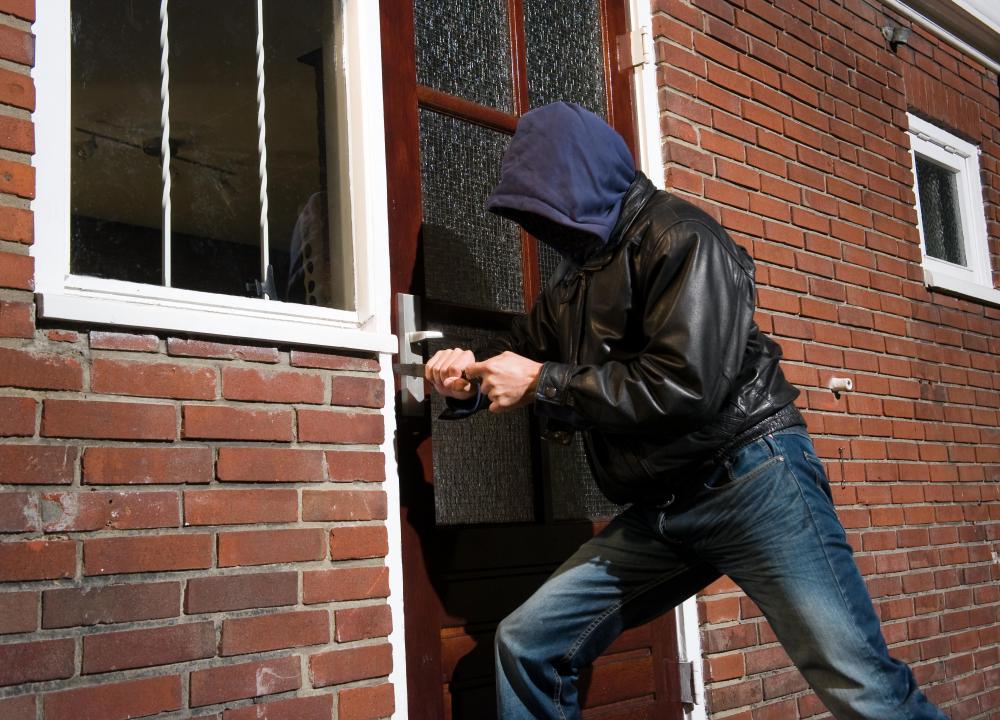At WiseGEEK, we're committed to delivering accurate, trustworthy information. Our expert-authored content is rigorously fact-checked and sourced from credible authorities. Discover how we uphold the highest standards in providing you with reliable knowledge.
What is Second-Degree Burglary?
Second-degree burglary is a type of burglary that includes certain components that set it apart from other forms of burglary, as defined by the statutes of a particular country, state, or territory. There is no clearly defined, universal form of burglary that constitutes such a crime as being of the second degree. Degrees of crimes are established by the statutes of a particular area, which means this type of crime can mean different things in different locations. Second-degree burglary is typically less severe than first-degree burglary and more severe than third-degree burglary for areas in which third-degree burglary is established.
Burglary of any type typically consists of breaking and entering a building for the express purpose of committing a crime. While this is often associated with the crime of theft or larceny, many countries and areas have statutes that associate burglary with any type of secondary crime, not only theft. Many of these countries also establish different types and degrees of burglary, so that varying degrees of punishment can be applied to crimes based on their severity. In these countries, second-degree burglary is typically a less severe crime than first-degree burglary and may result in reduced punishment as a consequence.

While there is no universal definition of second-degree burglary, it often involves the use or possession of potentially deadly weapons, threats, or physical assault while committing burglary in a dwelling. This distinction is not always accurate, however, as some statutes may not include the use of threats or weapons, and instead merely define second-degree burglary as any type of burglary that takes place in a dwelling. A dwelling is typically defined as a building in which one or more people live. This is in contrast to businesses and abandoned buildings, in which commission of burglary may be regarded with reduced severity, such as third-degree.

In many areas, the establishment of second-degree burglary is not only used to define a lesser form of burglary from first-degree, but also as a means of “charge stacking.” Charge stacking refers to the use of statutes to establish separate legal charges for a single criminal act. Someone who breaks into a person’s home, violently assaults that person, and then steals jewelry, for example, can potentially be prosecuted with numerous charges. While only a single act was committed, charges may include first-degree burglary, second-degree burglary based on the fact that a dwelling was entered, assault, larceny, and other charges that are “stacked” together.
AS FEATURED ON:
AS FEATURED ON:













Discuss this Article
Post your comments